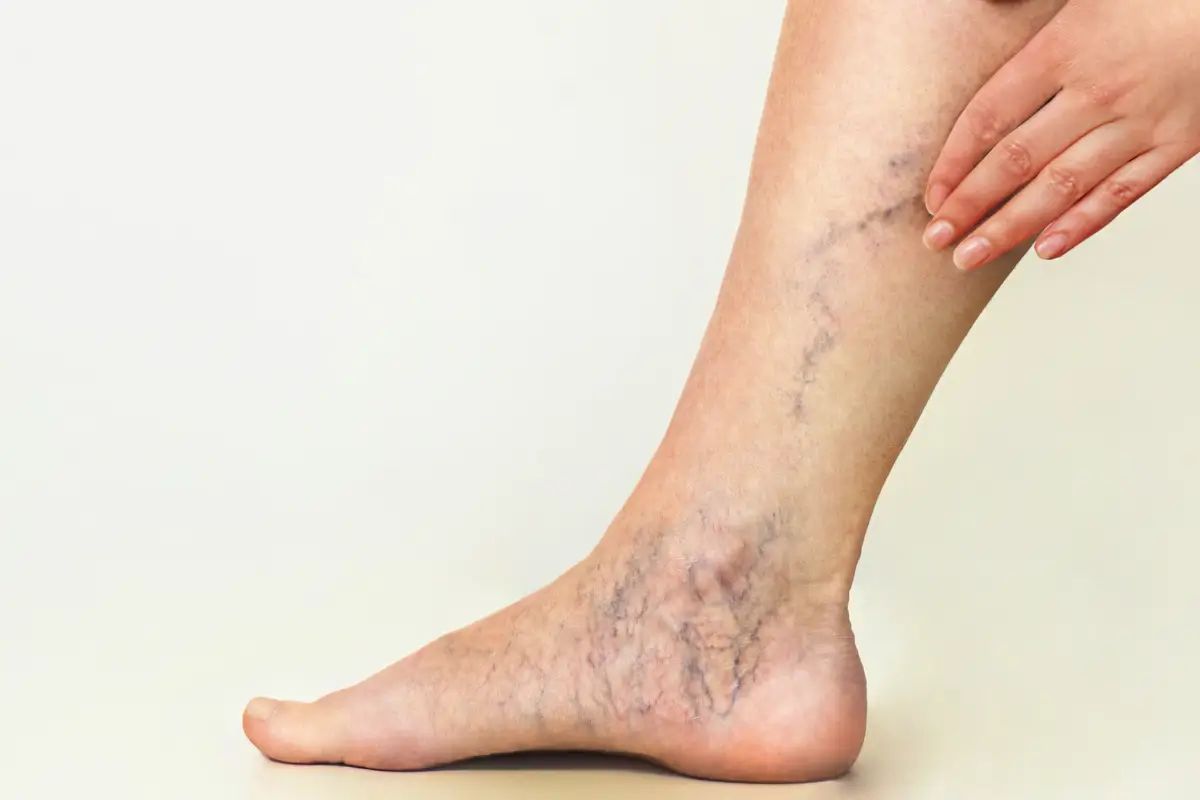Spider veins, those delicate clusters of red, blue, or purple veins, extend beyond mere cosmetic issues. Despite their small size, they carry significant implications for women’s confidence and holistic wellness. These visible veins, often found on the legs and face, can erode self-assurance and impact overall mental health. Through this article, we navigate the intricacies of spider veins, uncovering their origins, consequences, available treatments, and preventative measures. By fostering an understanding of these vascular intricacies, women can cultivate healthier veins and reclaim confidence in their appearance and well-being.
Understanding Spider Veins
Spider veins, scientifically known as telangiectasia or venulectasias, are dilated blood vessels positioned near the skin’s surface. Their appearance often mirrors that of spider webs or tree branches, hence the descriptive name. Predominantly found on the legs and face, they can manifest elsewhere on the body. Though typically benign, spider veins may induce discomfort, itching, and aching sensations, particularly during prolonged periods of standing or sitting. While their exact cause varies, factors such as genetics, hormonal changes, obesity, and prolonged sun exposure contribute to their development. Treatment options range from lifestyle modifications to medical interventions like sclerotherapy or laser therapy, aimed at diminishing their appearance and alleviating associated symptoms. Regular exercise, maintaining a healthy weight, wearing compression stockings, and avoiding prolonged periods of sitting or standing can help manage spider veins and promote overall vascular health.
Causes and Risk Factors
Several factors contribute to the development of spider veins, including:
- Heredity: Genetics play a significant role in predisposing individuals to spider veins. If your parents or close relatives have them, you’re more likely to develop them too.
- Hormonal Changes: Fluctuations in hormone levels, such as those occurring during puberty, pregnancy, and menopause, can weaken vein walls and contribute to the formation of spider veins.
- Occupational Factors: Jobs that require prolonged periods of standing or sitting can increase the risk of developing spider veins due to impaired blood circulation.
- Obesity: Excess weight puts added pressure on the veins, making them more susceptible to becoming enlarged and visible.
- Lifestyle Factors: Lack of exercise, smoking, and a diet high in processed foods can also contribute to the development of spider veins.
Impact on Women’s Confidence
Spider veins, besides causing physical discomfort, significantly affect a woman’s self-esteem and confidence. The visibility of these veins often leads to self-consciousness, especially when exposing legs or face, resulting in wardrobe limitations and avoiding social engagements. The embarrassment and insecurity stemming from their appearance can impede personal and professional spheres of life. Many women endure psychological distress, feeling scrutinised and judged due to these veins, which can manifest as reluctance to participate in activities, impacting their overall quality of life. Consequently, addressing spider veins extends beyond cosmetic concerns, addressing psychological well-being and societal interactions, highlighting the multifaceted impact of this condition on women’s lives.
Treatment Options and Prevention
Fortunately, several treatment options are available to reduce the appearance of spider veins and alleviate associated symptoms:
- Sclerotherapy: This minimally invasive procedure involves injecting a solution directly into the affected veins, causing them to collapse and fade over time.
- Laser Therapy: Laser treatments target and destroy the spider veins using focused light energy, leading to their gradual disappearance.
- Compression Therapy: Wearing compression stockings or socks can help improve blood circulation and reduce the appearance of spider veins, especially during long periods of standing or sitting.
- Surgical Removal: In severe cases, surgical procedures such as vein stripping or ambulatory phlebectomy may be necessary to remove large or persistent spider veins.
In addition to seeking professional treatment, certain lifestyle changes and preventive measures can help manage spider veins:
– Regular Exercise: Engaging in activities that promote circulation, such as walking, swimming, or cycling, can help prevent spider veins from worsening.
– Healthy Diet: Eating a balanced diet rich in fruits, vegetables, and fibre can support overall vein health and reduce the risk of obesity-related complications.
– Elevating Legs: Elevating the legs above heart level when resting can help improve blood flow and alleviate discomfort associated with spider veins.
– Avoiding Prolonged Sitting or Standing: Taking frequent breaks and changing positions regularly can prevent blood from pooling in the legs and exacerbating spider veins.
Seeking Professional Help
If you’re experiencing discomfort or find that spider veins are impacting your daily life, it’s crucial to consult a certified dermatologist or vascular specialist. These professionals can evaluate your condition thoroughly, offering tailored treatment solutions and valuable guidance on preventive measures to reduce the likelihood of spider veins reoccurring. By seeking expert assistance, you’ll not only address immediate concerns but also gain insights into managing your vascular health effectively. Don’t hesitate to reach out to specialists who can provide the care and support you need for optimal well-being.
Conclusion: Embracing Healthy Veins
While spider veins may present challenges for many women, it’s important to remember that they are a common and treatable condition. By understanding the causes, impact, and available treatment options, women can take proactive steps to manage spider veins and regain their confidence. Whether through lifestyle modifications, professional interventions, or a combination of both, embracing healthy veins is possible, allowing women to feel comfortable and empowered in their own skin. So let’s bid adieu to vein vexation and embrace a future of healthy, radiant skin.





